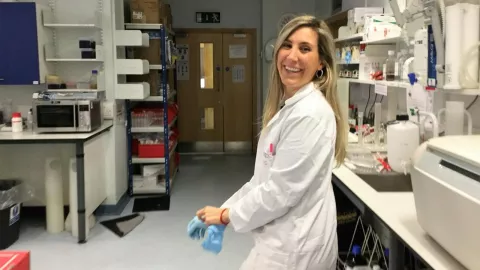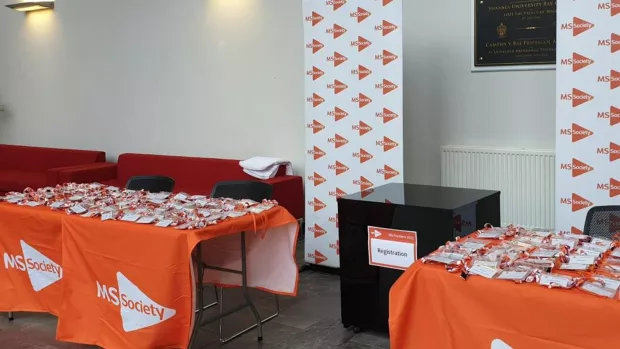
"It's very important for research to replicate society"
Dr. Irene Gonzalez-Molina is a researcher studying myelin repair at the University of Edinburgh. She talked to us about how going to MS Frontiers will help her research. You’ll also see a question from Roxy Murray, who lives with MS and also went to MS Frontiers.
What did you think of the MS Frontiers conference?
The feeling of community is really nice. Especially because it brings people who do the lab science, the clinical side and the experiences of people living with MS all together.
It’s always a boost to meet people who ask you questions about your research. You find out what you can improve and areas where you lack knowledge. It makes you think a lot.
Roxy asks: What inspired you to get into research?
I'm very curious to understand how changes in the brain are driven by the cells. When you understand changes at this level of detail, it's easier to find what goes wrong. And ultimately help find a potential treatment.
My research investigates the interaction between two brain cells, oligodendrocytes and astrocytes. Not much research is done with astrocytes. So I want to see if we can help increase myelin repair to develop new treatments. And to do this we need to understand more about these cells in MS.
What was the most interesting moment of the conference?
I was so interested in the work on the ADAMS study looking at different ancestries and genes. It really shocked me that it hadn’t been done before. You don't realise all of these things and I think it's very important for research to reflect society. I think we have work to do here that'll be good for everyone.
In my research, I look at how cells behave in different types of lesions. Now I'm wondering about how the cells behave in different people as well. I like the idea of more personalised medicine as a better approach.
What have you been thinking most about since?
Listening to the debate about the labels used for the different stages of MS. It was great that there were researchers and people with MS debating. It's good to hear the perspective from people with MS about where labels have and haven’t helped them. I think it’s really important for us researchers to take this into account.
I've been thinking a lot about the people I met. When you know the people you're doing the research for and hear their stories, it encourages you even more to help in some way.



